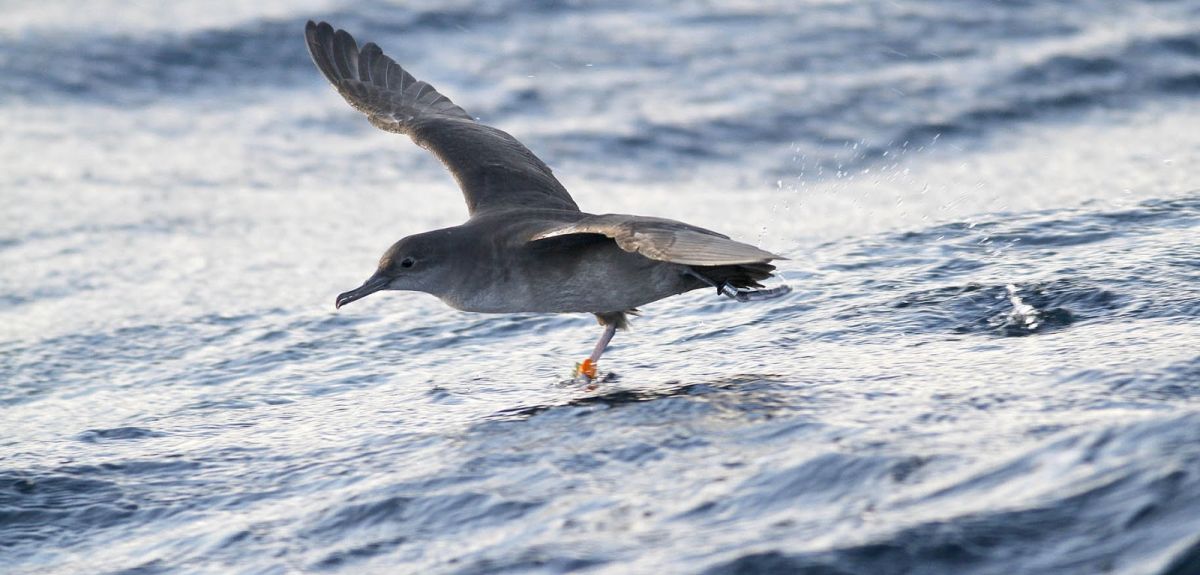
Image credit: Joe Pender
Europe's rarest seabird 'could be extinct within 60 years'
The Balearic shearwater, Europe's most endangered seabird, is 'on the road to extinction', according to an international team of scientists.
But researchers say its demise could be avoided with a simple technique – the setting of fishing lines at night, when the bird does not dive for food.
Experts put the global population of Balearic shearwaters (Puffinus mauretanicus) at about 7,200 breeding pairs and fewer than 30,000 individuals. The main threat to the bird is becoming entangled in fishing gear.
The research is published in the Journal of Applied Ecology.
Professor Tim Guilford of the Department of Zoology at the University of Oxford, a co-author of the study, said: 'The survival of adults from one year to the next, and especially of young adults, is much lower than we thought. The species is unsustainable – it is on the road to extinction.'
The team, comprising scientists from Oxford, Southampton and Spain, and led by Meritxell Genovart of Palma de Mallorca's Mediterranean Institute for Advanced Studies, used modern techniques to model the sustainability of the current population, which is numbered at fewer than 30,000 birds. With declines of about 14% a year, complete extinction is predicted within about 60 years.
Estimates of survival from the world's largest single colony, a remote cave on Mallorca where the Oxford team works, show that it is far below what is needed to maintain population growth or stability.
However, policy changes such as setting fishing gear at night when the bird does not dive 'could make a massive difference,' according to Professor Guilford.
He said: 'Fishermen do not want to catch seabirds on their lines or in their nets, but shearwaters can be persistent scavengers. Indeed, the researchers estimate that the recent European ban on discard waste in the Mediterranean will actually increase the risk to the Balearic shearwater population by reducing reproductive success, at least in the short term.
'However, this effect turns out to be much less important than the effect of bycatch on adult survival. Indeed, the models suggest that extinction is inevitable unless bycatch is eliminated or greatly reduced.
'By tracking breeding shearwaters with miniature on-board dive loggers, the team has shown that the birds do not dive for fish at night, so night-setting of fishing hooks might help avoid the bycatch problem.'
Professor Guilford added: 'The science shows just how serious the problem is, but also that there is a technically simple solution – the setting of demersal long-lines at night. Now it is up to the politicians to decide.'
The study 'Demography of the critically endangered Balearic shearwater: the impact of fisheries and time to extinction' is published in the Journal of Applied Ecology.
 Expert Comment: Is an under-16 social media ban the right course?
Expert Comment: Is an under-16 social media ban the right course?
 ADHD medication use rises sharply across Europe, driven by growth among adults
ADHD medication use rises sharply across Europe, driven by growth among adults